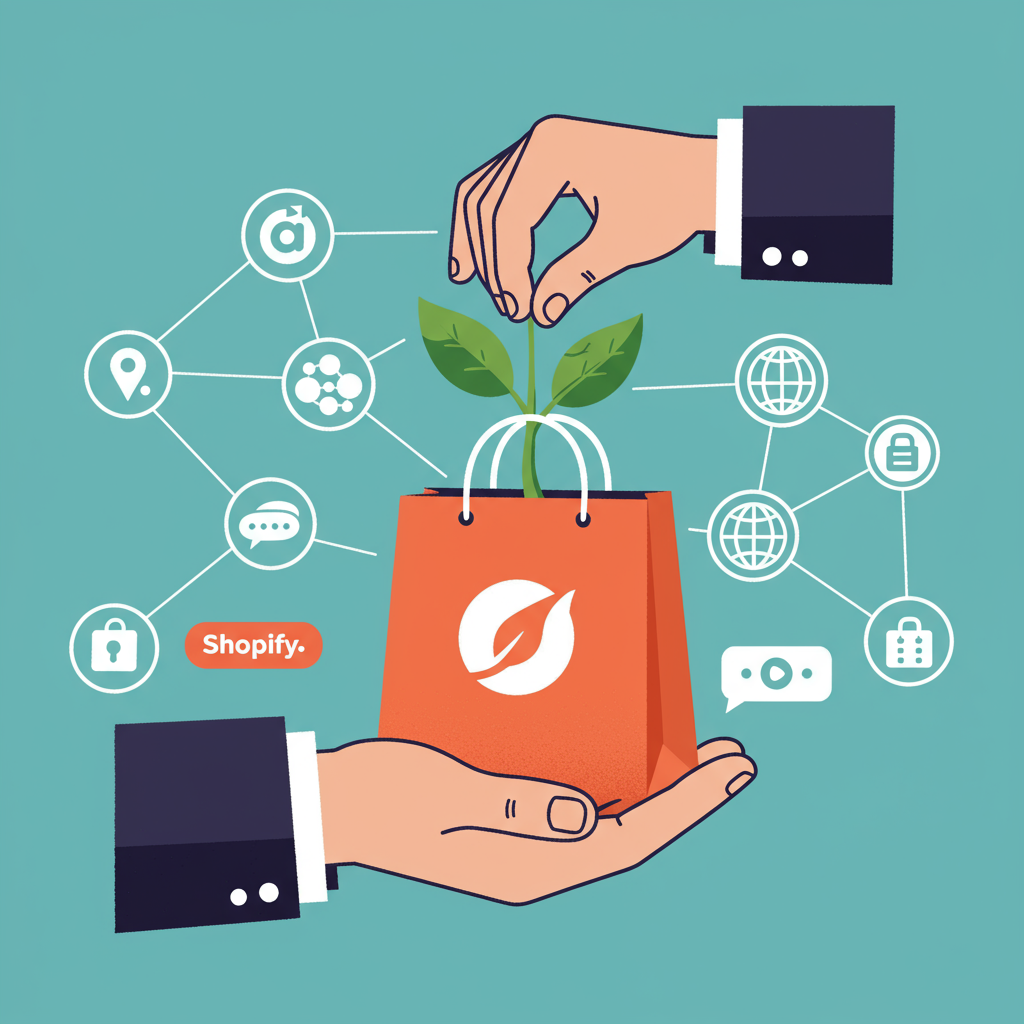How Shopify Merchants Can Give Back and Make a Lasting Positive Impact
As an e-commerce merchant, I’ve always been driven by more than just sales figures. I believe that our businesses, especially those thriving in the digital space, have a unique opportunity—and perhaps even a responsibility—to contribute positively to the world around us.
This isn’t just about feeling good; it’s about building a sustainable, resilient business that resonates deeply with today’s conscious consumer. It’s about integrating social responsibility into the very fabric of your Shopify store.
So, what exactly do I mean by ‘social responsibility’ in the context of e-commerce? It extends far beyond simply donating a portion of your profits, though that’s certainly a valuable component.
For me, it encompasses a holistic approach: ethical sourcing, environmental stewardship, community engagement, and fostering a positive impact throughout your entire supply chain and customer journey.
Why is this so crucial for us, the Shopify merchants? The answer lies in the evolving landscape of consumer expectations. Today’s shoppers, particularly younger generations like Gen Z and Millennials, are increasingly voting with their wallets.
They want to support brands that align with their values. They seek authenticity and transparency, and they are willing to pay a premium for products from companies that demonstrate a commitment to social good.
By embracing social responsibility, you’re not just doing good; you’re building a stronger brand identity, fostering deeper customer loyalty, and differentiating yourself in a crowded marketplace.
It also plays a significant role in attracting and retaining talent. Employees, especially in the modern workforce, are looking for purpose-driven organizations where their work contributes to something meaningful.
From a marketing perspective, your social impact initiatives can become powerful storytelling tools. Authentic stories about your commitment can generate positive PR and organic buzz that traditional advertising often can’t replicate.
The beauty of operating on a platform like Shopify is the inherent flexibility and access to tools that can help you integrate these practices seamlessly into your operations.
Let’s dive into some practical ways I’ve found to weave social responsibility into an e-commerce business, starting with your products.
**Ethical Sourcing and Supply Chain Transparency:** This is foundational. I always ask: where do my products come from? Who made them? Under what conditions?
Prioritizing suppliers who adhere to fair labor practices, offer fair wages, and ensure safe working environments is paramount. Look for certifications like Fair Trade or B Corp if applicable to your industry.
**Environmental Stewardship:** Our planet needs our attention. For e-commerce, this often starts with packaging. I’ve transitioned to using recycled, recyclable, or compostable materials whenever possible.
Minimizing packaging waste is another key area. Can you ship items in smaller, more efficient packages? Can you eliminate unnecessary inserts?
Carbon offsetting for shipping is also a fantastic initiative. Shopify has made this incredibly easy with apps like Shopify Planet, which automatically calculates and offsets the carbon emissions from your deliveries.
I’ve found that customers genuinely appreciate knowing their purchase isn’t contributing negatively to the environment, and often, they’re willing to pay a small premium for it.
**Community Giving Back:** This is perhaps the most visible form of social responsibility. I’ve explored various avenues here, from direct donations to strategic partnerships.
Partnering with a non-profit organization whose mission aligns with your brand values can be incredibly impactful. You can pledge a percentage of sales, donate specific products, or even create limited-edition items where all proceeds go to charity.
Shopify apps like ‘Give & Grow’ or ‘Pledgeling’ make it simple to integrate donation options directly into your checkout process, allowing customers to round up their purchase or add a small donation.
Consider local initiatives too. Supporting local charities, schools, or community projects can build strong ties within your immediate geographic area, even if your primary sales are online.
**Employee Welfare (if you have a team):** While many Shopify merchants start as solopreneurs, as your business grows and you hire, ensuring fair wages, good working conditions, and a supportive company culture becomes a vital part of your social responsibility.
**Transparency and Communication:** It’s not enough to just *do* good; you need to *communicate* it authentically. Share your efforts on your website, in your marketing materials, and on social media.
Create a dedicated ‘Our Impact’ or ‘Sustainability’ page on your Shopify store. Use clear, concise language and back up your claims with data or stories. Avoid ‘greenwashing’ – be genuine about your efforts and acknowledge areas where you’re still working to improve.
Measuring your impact, even in simple ways, can help you track progress and refine your strategies. This could be tracking the number of trees planted, the amount of carbon offset, or the total donations made.
While integrating social responsibility might seem like an added cost or complexity, I’ve consistently found that the long-term benefits far outweigh the initial investment.
It builds a more resilient brand, attracts a loyal customer base, and ultimately, creates a business you can be truly proud of.
It’s a journey, not a destination. Start small, choose one or two areas where you can make a genuine difference, and build from there. Every step, no matter how small, contributes to a larger positive impact.
What do you think about this article? I’m always eager to hear other merchants’ perspectives on integrating social responsibility into their e-commerce ventures.
Remember, as Shopify merchants, we have the power to not only sell products but also to shape a better, more responsible future for commerce. Let’s embrace that power together.






